Book Excerpt: Super Brain by Deepak Chopra, MD and Rudolph E. Tanzi, PhD
If the music world had no virtuosos, no one would ever guess at the amazing things a Steinway grand can do. Fortunately, research on brain performance is providing us with stunning examples of untapped potential brilliantly coming to life. Only now are these amazing individuals being studied with brain scans, which makes their abilities more astonishing and at the same time more mysterious.
Let's consider Magnus Carlsen, the Norwegian chess prodigy. He earned the highest ranking in chess, grand master, at the age of thirteen, the third youngest in history. Around that time, in a speed game, he forced Gary Kasparov, the former world chess champion, to a draw. "I was nervous and intimidated," Carlsen recalls, "or I would have beat him." To play chess at this level, a grand master must be able to refer, instantly and automatically, to thousands of games stored in his memory. We know the brain is not filled with sawdust, but how a person is able to recall such a vast storehouse of individual moves—amounting to many million possibilities—is totally mysterious. In a televised demonstration of his abilities, young Carlsen, who is now twenty- one, played ten opponents simultaneously in speed chess—with his back turned to the boards.
In other words, he had to keep in mind ten separate chess boards, with their thirty- two pieces, while the clock permitted only seconds for each move. Carlsen's performance defi nes the limit of memory, or a small slice of it. If it is difficult for a normal person to imagine having such a memory, the fact is that Carlsen isn't straining his brain. What he does, he says, feels completely natural.
We believe that every remarkable mental feat is a signpost showing the way. You won't know what your brain can do until you test its limits and push beyond them. No matter how inefficiently you are using your brain, one thing is certain: it is the gateway to your future. Your success in life depends on your brain, for the simple reason that all experience comes to us through our brains.
We want Super Brain to be as practical as possible, because it can solve problems that are far more difficult, or even impossible, for the baseline brain. Each chapter will end with its own Super Brain Solutions section, with a host of innovative suggestions for overcoming many of life's most common challenges.











